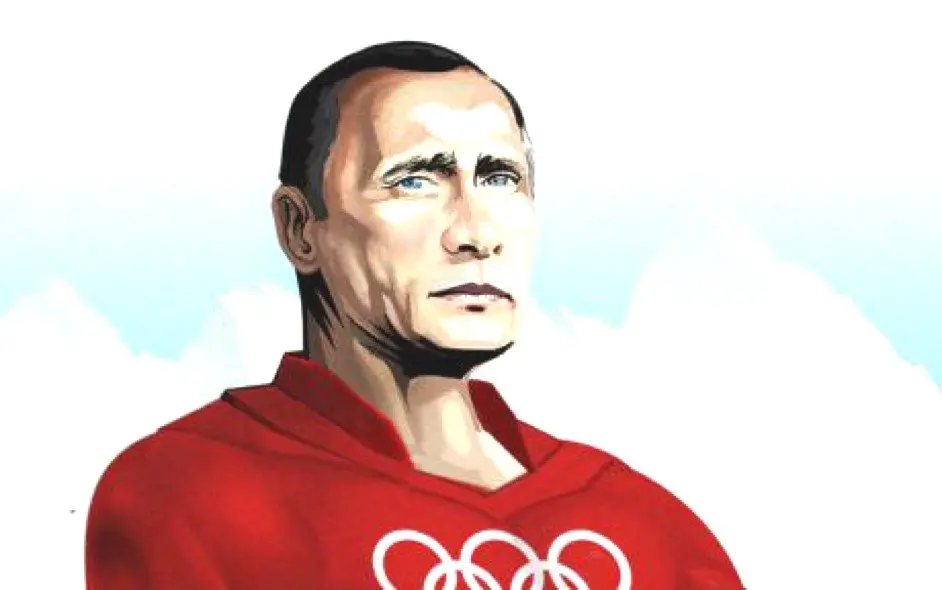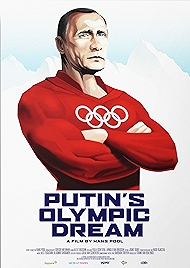“There was only a mountain, no road. A forest, a river, nothing else. Nothing there at all.” Oligarch Vladimir Potanin, a (former) investor in the Sochi Winter Olympics says with just a touch of residual pride about Sochi, a spa town on the Black Sea that is now home to the Winter Olympics. He got involved back in 2002, when it was a smallish private project, before President Putin, as he was then and is again now (having made himself prime minister for a spell, so as to sidestep an annoying constitutional restriction on being president too often) involved himself and directed the full force of the state onto the event, making it an advert for the former KGB strongman and his renascent country.
Sitting in London writing this, where we’ve just had an Olympics and have also watched as areas turned into lakes of concrete before becoming state of the art velodromes, or what have you, some of director Hans Pool’s almost entirely negative documentary looks initially like the carping of a man surprised to find the making of an omelette requires the breaking of eggs. And it’s tempting to say, “That’s what it takes, Hans”.
Pool has an eye for a telling image, and he gets about a fair bit too. He meets lots of locals, people who now have to cross a building site to get to the cemetery where their ancestors are buried. He talks to the engineers who are worried that the ski lift has been put up badly, who are concerned because its stanchions are obviously falling over. With environmentalists he visits parts of a village that have literally slid down a hill. He introduces us to the human rights activist (weren’t they once called union activists?) who are leafleting the workers, mostly incomers from Uzbekistan, who look as if they might be more interested in hearing what the activist had to say if the camera weren’t there. And he talks to the workers in the Metallurg Spa, one of those beautiful old palaces of tile and steam that were all over the Eastern Bloc in the old days, a sanatorium staffed by meaty women in starched uniforms who knew exactly what to do with you but it was going to hurt. It’s being privatised, and will no longer be affordable by the many.
The Olympic village is where the old communist USSR meets the new capitalist order, in other words. “Putin rules like the Tsars used to rule,” says one guy ruefully. Note that he doesn’t say “like Stalin used to rule”, because for this older generation, a return to the Soviet era would be like waking up in a warm bed after a bad dream. “Socialism is over, but capitalism hasn’t properly started yet,” says another – meaning the system is even more corrupt than it was in the old days, but the state no longer offers the protection (or jobs for life) it once did.
For the most part Putin’s Olympic Dream is a portrait of this old world bumping against the new and coming off badly, of poor people living simple lives, drinking tea and eating chicken, wondering how they can afford 1,800 euros for a mortgage they don’t even want, in a town that previously wasn’t much, but it was theirs.
There is little to celebrate here. Nothing in fact. And the film would benefit from a voiceover, something to offer context, or explanation, or even just a countervailing point of view – that the problem isn’t capitalism or communism, it’s the lack of the rule of law, just say for instance. And after we’ve met the former construction boss who now cowers in his apartment because he wasn’t prepared to go along with the corruption, we slide towards the end credits and some intertitles. The human rights guy is getting death threats, it seems, and between 50% and 70% of the migrant workers have been deported without being paid. Ugly. Let’s hope the Games themselves make some of this worthwhile.
© Steve Morrissey 2014

